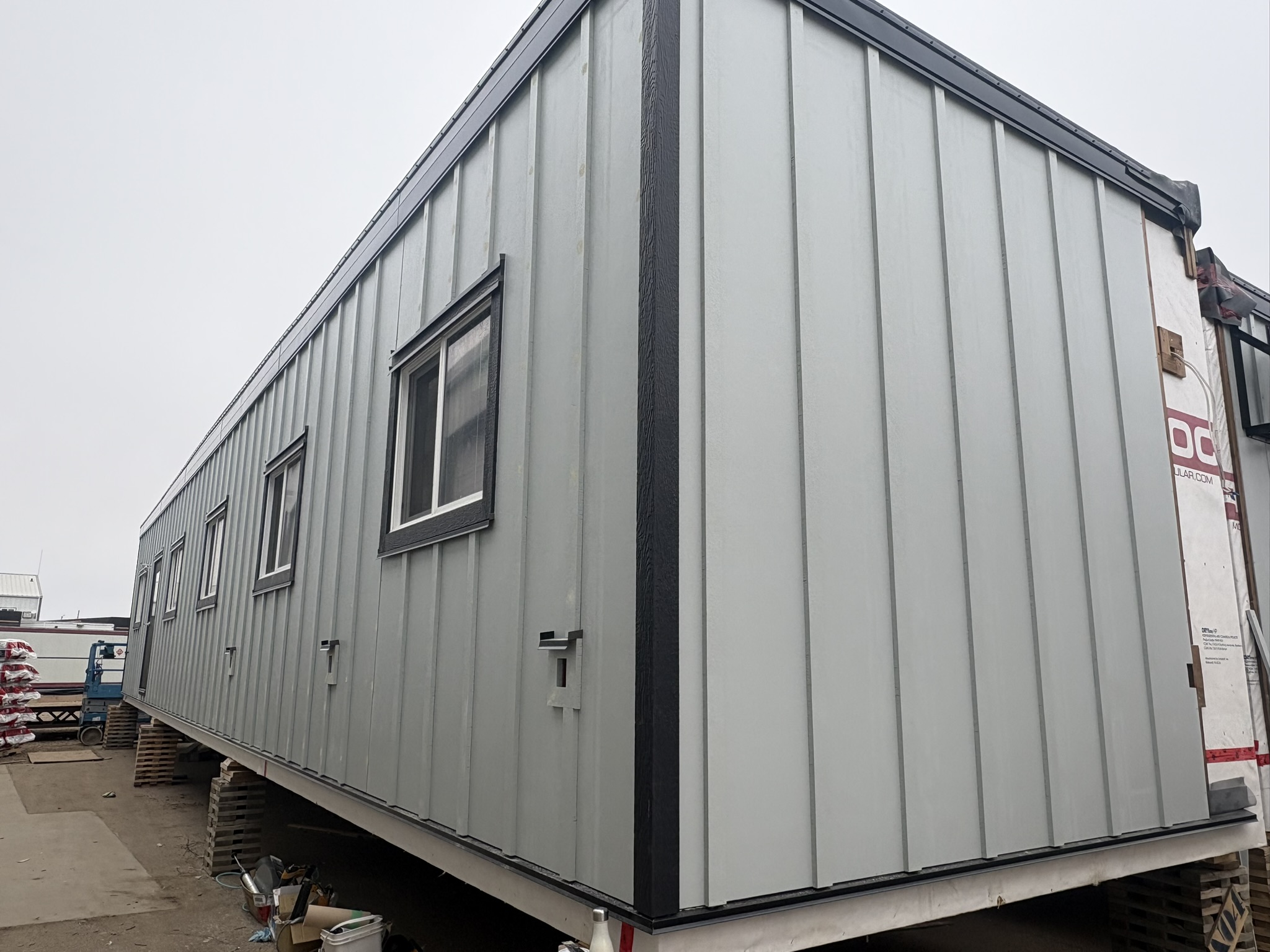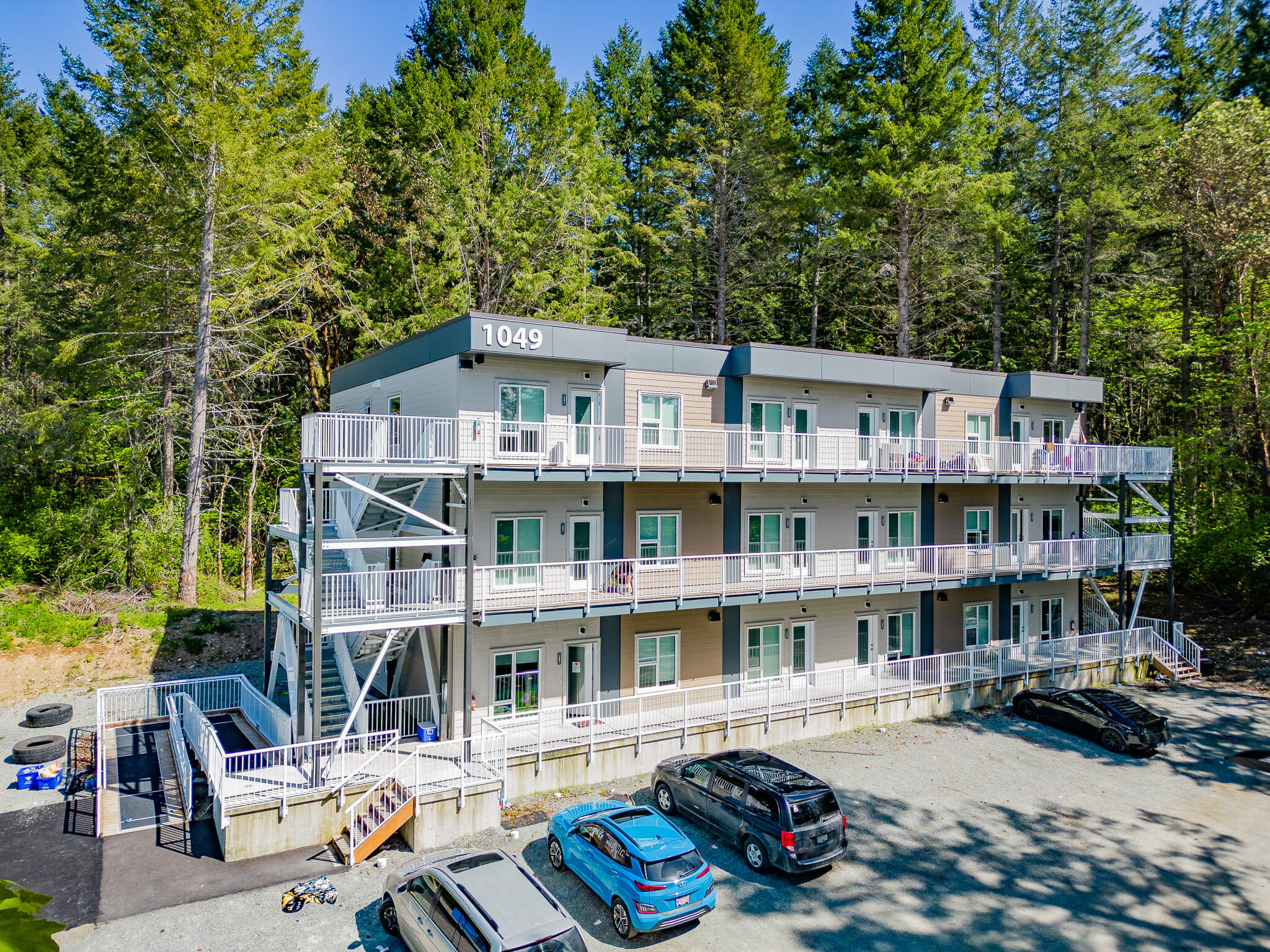Our Prime Minister is Paying Attention!
In a media blitz and policy discussion on the way to his federal election win, Mark Carney outlined his vision for solving Canada’s deepening housing crisis, and it includes one keyword that should have every home builder paying attention: modular.
What Carney Said and Why it Matters
 Carney’s housing platform places strong emphasis on scaling up housing supply with speed, sustainability, and modern building methods. Specifically, Carney calls for the federal government to help provinces and municipalities adopt off-site manufacturing models, like modular construction, to unlock homes faster.
Carney’s housing platform places strong emphasis on scaling up housing supply with speed, sustainability, and modern building methods. Specifically, Carney calls for the federal government to help provinces and municipalities adopt off-site manufacturing models, like modular construction, to unlock homes faster.
This is significant because it represents a long-overdue shift in the national conversation. While zoning reform and densification have dominated headlines, Carney’s plan leans into construction innovation as a critical lever. For builders like us at ROC Modular, it’s not just validation, it’s a signal that Canada is finally ready to rethink how we build.
The new Federal Liberal Government has a bold plan to catalyze housing construction — and it’s a game-changer for the modular and prefab home industry. Key elements of the plan include:
- $25 billion in low-cost debt financing to accelerate new home construction
- $1 billion in equity investments for Canadian prefabricated housing manufacturers
- Bulk orders of modular units to establish sustained demand
Modular = Momentum
This isn’t a theoretical solution, it’s already been proven. Back in 2017, Vancouver, under then-Mayor Gregor Robertson, led the charge by proposing modular housing as the foundation of its federal funding request. The city’s plan included a rapid rollout of 600 modular units, showing exactly how this approach can work at scale. Now, as Canada’s Housing Minister, Robertson brings that hands-on experience to the national stage. 
Following this initiative, Vancouver successfully implemented several modular housing projects. As of April 2020, the city had completed 663 units across multiple sites that would provide immediate relief for individuals experiencing homelessness, offering self-contained suites with supportive services.
This isn’t a one-off, it’s a case study in action.
At ROC, we’ve helped build a number of affordable housing projects. In Richmond, BC, ROC Modular’s innovative approach to modular construction enabled the rapid delivery of 25 supportive housing units for vulnerable populations. By collaborating with BC Housing and local partners, they overcame floodplain challenges and community integration concerns to provide safe, permanent homes. This project exemplifies how modular solutions can address urgent housing needs efficiently.
To learn more about this impactful initiative, visit the full case study here.
Another example is The City of Surrey Modular Supportive Housing project. This exemplifies how modular construction can rapidly deliver high-quality, energy-efficient homes for vulnerable populations. Comprising 60 suites across six storeys, this 41,000 sq. ft. development was built using 54 modules at ROC Modular’s facility, adhering to BC Energy Step Code 4 standards. Delivered under the CMHC Rapid Housing Initiative for BC Housing, it demonstrates how modular innovation can meet urgent housing needs without compromising sustainability or design.
Explore the full project details here.
Cities like Vancouver are embracing modular because the traditional approach simply isn’t fast enough. Modular construction enables simultaneous site development and building fabrication, reducing overall project timelines significantly. It’s this kind of strategic momentum that modular construction makes possible.
At ROC, we’ve delivered that momentum. From multiple BC Housing builds, permanent staff accommodations in remote tourism areas like Kanananaskis, Alberta, to supporting housing in resource-constrained communities, our projects have proven that modular is not just fast, it’s resilient, adaptable, and built to last.
ROC Modular Supports Canada’s Housing Design Catalogue for Faster Builds

The federal government is changing how homes are built in communities across the country. They’re doing this by working with the housing sector and supporting innovative ways to boost Canada’s housing supply. The federal government invited companies building modular houses to submit existing prefabricated housing designs to help inform the Housing Design Catalogue and expedite home building with standardized plans.
“We need to build more homes, faster to end Canada’s housing crisis and ensure that everyone has a safe and affordable place to call their own,” Sean Fraser stated.
“The Housing Design Catalogue will help get us there by expediting approval processes and building times, and reducing the cost of building.”
In a LinkedIn post, Brandon Searle, Director of Innovation and Operations at UNB’s Off-site Construction Research Centre, highlights that investing in modular construction can address urgent housing needs while also driving innovation and creating career opportunities in the industry.
For his full post on this, click here.
This is something ROC can agree on and it’s especially crucial as governments and developers alike are under pressure to deliver housing faster, on budget, and without sacrificing quality.
In a meeting with Tushara Williams, Deputy Secretary to the Cabinet (Operations), ROC Modular President and MBI Canadian Council Vice Chair Joe Kiss underscored the importance of aligning industry capabilities with the federal government’s ambitious housing goals.
“This is a pivotal moment for our sector,” said Kiss.
“With the government committing $25B in financing and $1B in equity to support prefabricated housing, we have an opportunity to not only address Canada’s housing crisis but to do it smarter, faster, and more sustainably. Modular construction is ready to rise to the challenge and ROC Modular is ready to lead.”
Read the summary that was posted in the MBI’s International Modular Construction Group here
A Call to Action for Canada’s Leaders
We’re at a turning point. With leaders like Mark Carney and Gregor Robertson endorsing prefab and modular housing strategies, Canada has a real chance to make this the new normal and not just a niche solution.
We can’t afford to wait.
Permitting and procurement processes need to evolve, and government funding programs must recognize modular’s value in terms of long-term affordability, speed, and community impact.
At ROC, we’re ready to help governments and developers seize this moment. We’ve built the projects, scaled the teams, and proven the model. What Canada needs now is execution… and we’re built for it.
If you’re planning a housing project and want to cut costs, timelines and risk, let’s talk. ROC Modular is helping communities build smarter, faster, and stronger.
Contact Us






